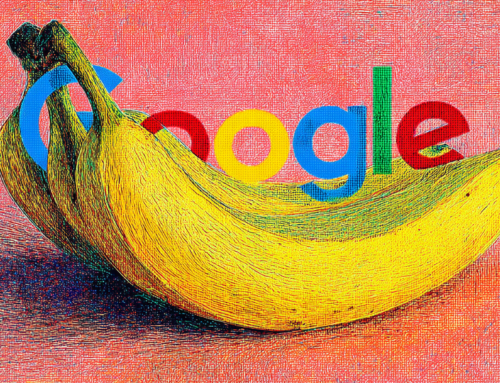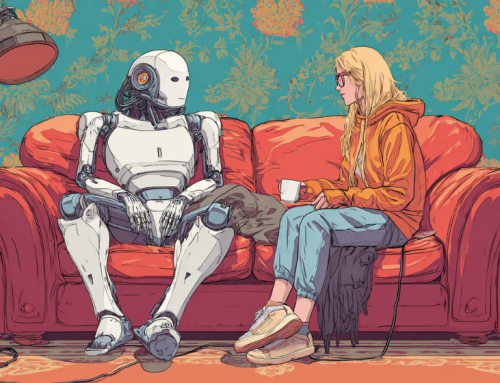
October 2017 brought a batch of exciting news in the AI world, from the release of a new API to create machine-learning apps, to an ex-Google engineer gone rogue who seeks to create God in an AI. Stay tuned to catch up on all of next week’s AI headlines as well as breaking news in quantum computing, VR/AR, robotics, IoT, blockchain, and other breakthrough technologies being explored at Seeflection.com.
AWS and Microsoft Partner to Offer AI API
On October 12, Amazon Web Services in partnership with Microsoft’s AI and Research Group, announced the release of Gluon, an API designed to allow developers of all skill levels to “prototype, build, train and deploy sophisticated machine learning models.”According to the companies, Gluon will mitigate the age-old trade off between ease of use and speed by allowing users to easily “create neural networks on the fly” and use existing templates while minimizing the sacrifices in computing speed. Amazon’s AI VP Swami Sivasubramanian claims that “building neural networks and training models can be as easy as building an app” with Gluon:
The Gluon interface gives developers the best of both worlds — a concise, easy-to-understand programming interface that enables developers to quickly prototype and experiment with neural network models, and a training method that has minimal impact on the speed of the underlying engine. […] In addition, because the Gluon interface brings together the training algorithm and the neural network model, developers can perform model training one step at a time. This means it is much easier to debug, update and reuse neural networks.
Gluon can be found here, and is currently available for use with the deep learning engine Apache MXNet with support coming soon for Microsoft Cognitive Toolkit (CNTK).
OpenAI Teaches AI Sumo Wrestling
OpenAI, the nonprofit founded by Elon Musk to further development into ethical AI research, has recently performed an intriguing study, as reported by Wired, in which neural networks have learned to engage each other in a primitive Sumo wrestling game. While the jittery humanoid figures duking it out in the low-res digital ring of RoboSumo may look underwhelming at first glance, the game illustrates a powerful mode of AI learning considering that the game’s AI players began the simulation not even knowing how to walk upright, let alone execute the complex moves needed to maintain balance while trying to knock down an opponent doing the same.

RoboSumo’s twin AIs battling in the ring. Image via OpenAI.
The secret to RoboSumo involves adversarial learning, a potent method of machine learning in which two neural networks are–hence the name–pitted against one another. The technique allows for AIs to hone one another rather than trying to learn from a static objective, the more traditional approach of reinforcement learning. OpenAI’s digital Sumo wrestlers even seemed to retain the lessons learned in the ring in other simulations–such as standing upright in simulated wind gusts–an example of “transfer learning” that proves the flexibility and adaptability of a well-trained AI.
PornHub Employs AI in Video Tagging
If watching a GIF of two crudely claymated Sumo wrestlers isn’t exactly, er, stimulating, then Pornhub may have something precisely up your alley among its more than 5 million videos. The website has struggled to keep up with its influx of 10,000 daily uploads but has rolled out a new AI system to assist in analyzing videos, according to an article (SFW) by TNW. According to the site, Pornhub’s AI model will “watch” the site’s videos and use computer vision AI to analyze their content, from identifying performers in the videos to intelligently categorizing the video under any number of the site’s growing number of tags and genres.

AI goes XXX – Pornhub’s machine learning methods illustrated. Image via Pornhub.
According to the company, the AI has already scanned 50,000 videos over its month-long training, with plans to eventually analyze and categorize all of the site’s content, enlisting the assistance of the site’s plentiful user base in up- or down-voting the AI’s results. With such a varied and vast library of content, Pornhub’s AI methodology may prove a boon for other more mainstream applications as well, such as other media and hosting services with a deluge of video content seeking an automated means of quality control and content analysis.
Former Google Engineer Starts AI Cult
Our final story of the week involves a positively strange development in the AI world which may prove a sign of our increasingly weird times. As dezeen reports in a sensational story originally broke by Wired in an in-depth exposé late last month, a former Google developer Anthony Levandowski has apparently founded the religious group Way of the Future to “develop and promote the realization of a Godhead based on Artificial Intelligence.”
But it turns out Levandowski’s sudden coming to faith may not be such a benevolent move on his part after all. A purportedly brilliant mind once at the cutting edge of Google’s autonomous car efforts, Levandowski founded his own team–Otto–to further develop autonomous vehicles, which he then sold to the rideshare giant Uber in a multi-million-dollar deal. Under the umbrella of Uber, Levandowski began spearheading the company’s self-driving truck research–until his former Google employers (operating under the driverless car company Waymo) got wind of the developments and sued Uber for nearly $2 billion.

Prophet or Profiteer? Anthony Levandowski. Image via Wired Backchannel.
Many commentators in the tech industry feel that Levandowski, estranged from both of his former employers at Google and Uber and facing vast monetary and legal threats, may be operating his AI religion from less-than-sincere aims, perhaps as a spurious attempt at reinvention or a potential tax-free haven under the guise of a bona fide religious organization. However, claims of the divinity of a potential super intelligent AI in the future aren’t unmerited, as philosophers, futurists, and theologians alike are already pondering the implications of how an AI vastly more intelligent than humans —essentially creating a kind of ‘God’— may shape our future. As computer scientist Alan Perlis once said, “a year spent in artificial intelligence is enough to make one believe in God.”
So, that about wraps up this week’s highlights in mainstream AI coverage. Enjoy your Friday the Thirteenth, and check in throughout the coming weeks for more and more in-depth details on advances in fields from machine learning to robots to virtual reality. And try not to think too much about the fact that some tech wizard’s prophesied AI deity is busy right this moment training Sumo wrestlers and watching porn…







Nice compilation Jordan